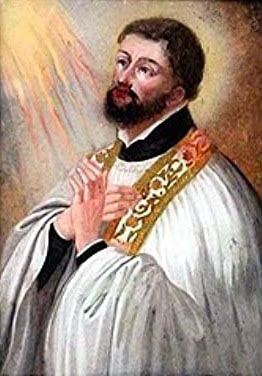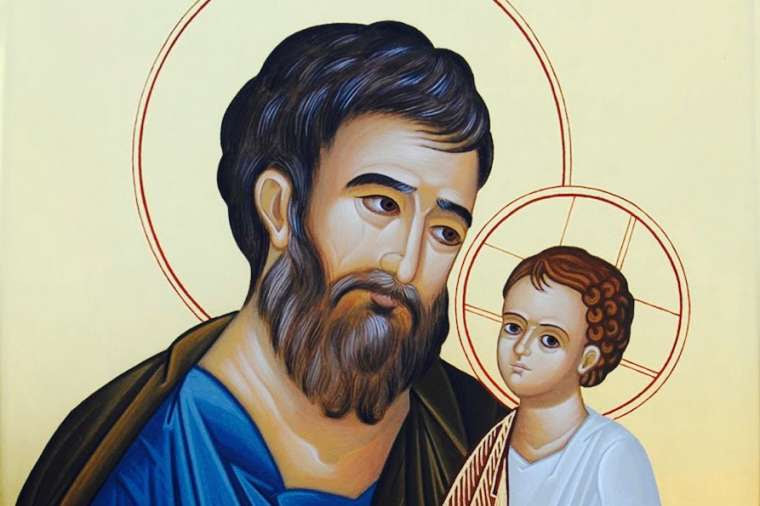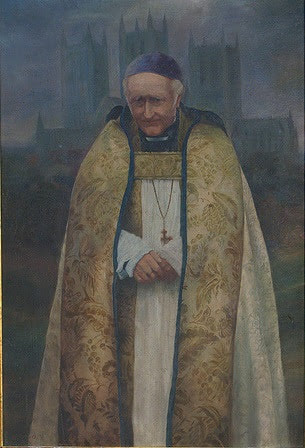|
Rev. Charles Hoffacker G. A. Studdert-Kennedy was among the best-known Anglican priests of the early twentieth century. While serving as a British chaplain during World War I, he became affectionately known as “Woodbine Willy.”
This passage from his book The Word and the Work is especially appropriate for today, the Wednesday in Holy Week. “On June 7th, 1917, I was running to our line half mad with fright, though running in the right direction, thank God, through what had once been a wooded copse. It was being heavily shelled. As I ran I stumbled and fell over something. I stopped to see what it was. It was an undersized, underfed German boy, with a wound in his stomach and a hole in his head. I remember muttering, ‘You poor little devil, what had you got to do with it? not much great blonde Prussian about you.’ “Then there came light. It may have been pure imagination, but that does not mean that it was not also reality, for what is called imagination is often the road to reality. It seemed to me that the boy disappeared and in his place there lay the Christ upon his cross, and cried, ‘Inasmuch as ye have done it unto the least of these my little ones ye have done it unto me.‘ From that moment on I never saw a battlefield as anything but a crucifix. From that moment on I have never seen the world as anything but a crucifix.”
0 Comments
Rev. Mary McCue Today is the first day of Holy Week, marking the coming end of Lent. In Lent,
we have the privilege of re-reading and re-living the events in Jesus’ life that mark his end and his beginning. The readings for this week are somber. They include intimations of betrayal by Judas Iscariot, Jesus washing his disciples’ feet and taking leave of them, the soldiers coming to arrest him, Pilates’ decision to allow him to be crucified, Peter’s denial of him and his burial. Scripture reminds us of all of these events. So do our Holy Week liturgies. While not as elaborate as they were in past years, and hopefully will be again in coming years, they serve to help us re-live the story of Jesus. Throughout Holy Week, the Gospel readings are from the Gospel of John. These readings narrate parts of the story of Jesus. They also offer hope. In the Gospel of John, Jesus repeatedly refers to Himself as the light. This Gospel includes more references to light – eleven – than in any other book in the New Testament, or in the Old Testament. We should pay close attention to those references; there is a message there for us. Despite the somber character of Holy Week, and its painful reminders of what was done to Jesus, he promises us Light – his light. He is the Light of the World. Thanks be to God. Rev. Mary McCue
MJ Layton
Rev. Charles Hoffacker What is by far the longest psalm in the Psalter ends with this verse:
"I have gone astray like a sheep that is lost; search for your servant, for I do not forget your commandments." (Psalm 119:176" The 22 sections of Psalm 119 each contain 8 verses. God’s law is the topic throughout, identified throughout by a variety of synonyms, including commandments, decrees, promise, statutes, and word. At first, this psalm can seem dull, but praying it repeatedly opens up its inexhaustible depths. The Daily Office Lectionary in the Book of Common Prayer assigns three consecutive sections of Psalm 119 to nearly every Wednesday in the year. In the final verse, the Psalmist appears as a lost sheep, a creature in need, whom God must search for and find. Here there is a radical and appropriate abandonment of all self-righteousness. At the same time, confidence in God rises up. The Psalmist does not forget the divine commandments and the utterly reliable promises they contain. So this massive psalm ends with a final assertion of our need and God’s provision. Here is the appropriate place from which to offer all our worship. Rev. Mary McCue Today's appointed reading is from the Letter to the Hebrews (2:1-4).
"Therefore we must pay greater attention to what we have heard, so that we do not drift away from it. For if the message declared through angels was valid, and every transgression or disobedience received a just penalty, how can we escape if we neglect so great a salvation? It was declared at first through the Lord, and it was attested to us by those who heard him, while God added his testimony by signs and wonders and various miracles, and by gifts of the Holy Spirit, distributed according to his will." In Lent, we all can benefit from making time to pray with the Scriptures. Hebrews is a good letter to spend some time with. Scholar Mark A. Powell calls it a masterpiece. It is written in polished and eloquent Greek. And, according to scholar Louis Berkhoff, it argues for the pre-eminence of the New Covenant – “an essential unity of Old and New Testament religions.” It uses Hebrew Scripture to argue that Jesus Christ was foretold as the king that was yet to come. At the time it was written – probably 63 or 64 – Jesus had not reappeared as a mighty King; some were becoming disillusioned. Who wrote it? In the fourth century, scholars thought it was the Apostle Paul. Later, scholarship shifted to other possible authors, largely because the language was so unlike Paul’s volatile, contextual Greek: Clement of Rome, Barnabas, Apollos or Priscilla. (Those who argue for Priscilla’s authorship claim that, to avoid suppression of the letter and/or the author, no name was attached.) Who ever wrote it, it is filled with beautiful language and thoughts. One is, I think, especially pertinent to us: “holy partners in a heavenly calling.” (Hebrews 3:1) MJ Layton  Today is the feast day of Gregory the Great, who was the Bishop of Rome from 590-604 AD. He is credited with sending the first missionaries to the English people, so the earliest seeds of our church were planted through his leadership. Gregory was an astute observer of the human condition and wrote about our tendency to self- deceive. He said, “For the mind frequently lies to itself about itself, pretending that it loves the good work when it does not, and that it does not care for worldly glory when in fact it does.” This is important to remember during Lent when we strive to fast or do works of charity. Our motives in these undertakings are complicated. However, rather than discourage us, this realization can turn us back towards God who offers us a new heart and a new spirit. Thanks be to God, whose forgiveness and grace for our shortcomings become our very motivation for serving God and others. Rev. Charles Hoffacker An old principle claims that we become that upon which we gaze. What captures our attention transforms us so that we resemble it. If this is true, then a preoccupation with gold and precious stones transforms us into something like them. They are beautiful, but they are also hard and lifeless.
When these valuables preoccupy us, we also become lifeless and hard. Psalm 119:127 offers us a different path, addressing God in these words: "Truly, I love your commandments More than gold and precious stones." The path that God provides for us merits our attraction far more than conventional wealth. If the gracious commandments of the Holy One occupy our hearts, we will become increasingly alive and come to resemble the God who is our focus. We will fulfill the purpose for which we exist. Every day we are assaulted by messages inviting us to devote ourselves to gold and precious stones. Through this hypnosis, we risk becoming hard and dead. Many people take this tragic path. Against this threat we can offer a bold prayer: Truly, I love your commandments More than gold and precious stones. Rev. Mary McCue
MJ Layton Solomon, the son of King David, was the second king of Israel. Early on in his reign, God granted him a request in a dream. 1 Kings 3:9 tells us that he asked for “an understanding heart” to govern God’s people (KJV). The Hebrew for this phrase can also be translated “a listening heart” or “an obedient heart.” Solomon over time became renowned for his wisdom, but this perhaps was his most insightful moment. He recognized that his own heart was inadequate and that if he wanted to hear and obey God, God would have to give him a new heart.
During Lent we become aware of our own inadequacies. We long to hear and obey, and at the same time we realize how prone we are to sin. May we too know that the heart that hears and obeys can only be placed in us by God. God is ready and willing to grant it, if we only ask. |
Archives
May 2021
authorsThe Rev. Charles Hoffacker is a retired priest of the Diocese of Washington |





 RSS Feed
RSS Feed
